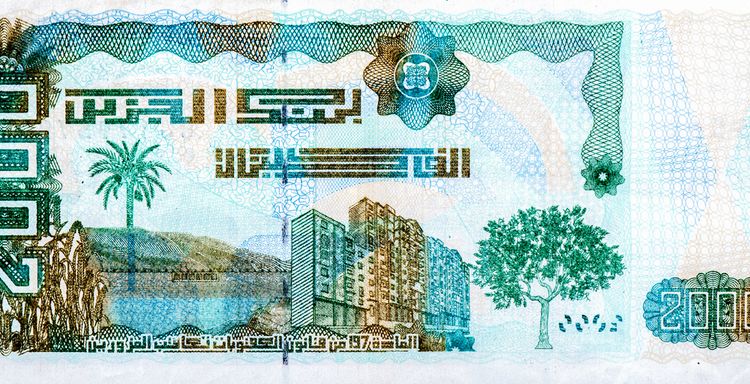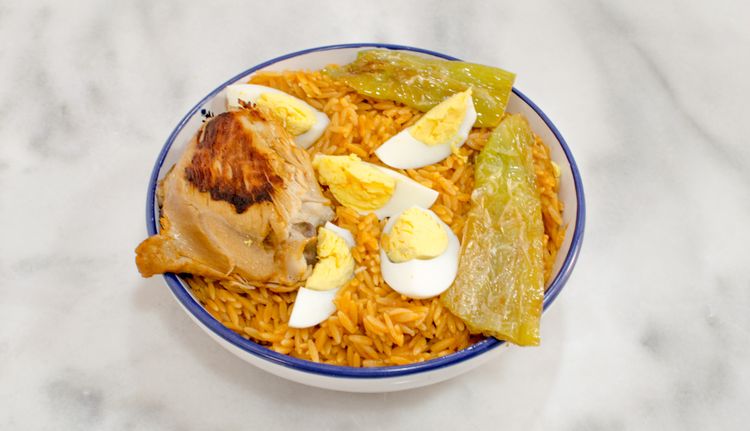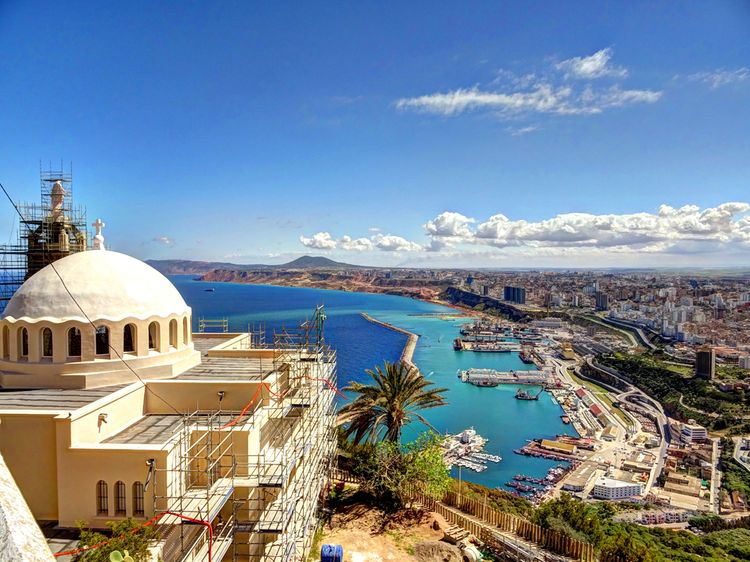Algeria Travel Tips and Information
Official Name
People’s Democratic Republic of Algeria
Capital
Algiers
Population
Country Code
Approximately 47 million
DZ
Country Code (international calls)
+213
The flight time to Algeria is approximately ---- hours. Check the climate, currency, religion, manners, other information of Algeria below. Wishing you pleasant travels to Algeria.
Algeria is located in the northwestern part of Africa, in the Maghreb region. The country borders the Mediterranean Sea to the north, Tunisia and Libya to the east, Niger to the southeast, Mali and Mauritania to the southwest, and Morocco and the Sahrawi Arab Democratic Republic to the west. A significant portion of Algeria is occupied by the Sahara Desert, with vast, dry plains extending across the land.
Local Climate / Weather
Seasonal Climate Overview Winter (December to February): In coastal areas, winter brings mild and wet weather, with temperatures averaging between 10°C to 15°C (50°F to 59°F). Inland and mountainous regions, however, experience cooler temperatures, and the peaks can even have snow, making them ideal for winter sports enthusiasts. Spring (March to May): Spring is one of the best times to visit Algeria, as the weather is warm but not overly hot. Coastal areas remain pleasant, while desert regions like the Sahara start to heat up but remain manageable. This season is perfect for sightseeing and exploring Algeria’s ancient ruins, as the landscapes bloom with spring wildflowers. Summer (June to August): Summers in Algeria can be very hot, especially in the desert regions, where temperatures soar above 40°C (104°F). Coastal cities like Algiers are more temperate, with averages around 25°C to 30°C (77°F to 86°F), making beach areas more favorable in the summer months. However, inland travel may be challenging due to the intense heat. Autumn (September to November): Autumn brings cooler temperatures and some rainfall, especially along the coast. Inland and desert regions remain warm but become more pleasant compared to the intense summer months. This is another excellent time for exploring Algeria’s natural and historical sites. Seasonal Travel Advice Best Time to Visit: For most travelers, the ideal time to visit Algeria is during spring (March to May) or autumn (September to November). These seasons offer moderate temperatures, making it comfortable for sightseeing and desert excursions. Desert Travel: Those interested in exploring the Sahara should aim for the winter or early spring months to avoid extreme heat. Protective clothing and adequate hydration are essential for desert trips. Beach Destinations: If planning a beach-focused trip, the summer months are ideal for coastal relaxation, though July and August can be crowded with local tourists. Major Events and Festivals Independence Day (July 5): Algeria celebrates its Independence Day with national pride. Events take place across the country, including parades, concerts, and historical exhibitions, especially in the capital, Algiers. Festival of Sahara (December): Held in the southern town of Tamanrasset, this festival celebrates the culture and traditions of the Tuareg people. Visitors can enjoy camel races, folk music, and dance performances unique to the Sahara. Eid al-Fitr and Eid al-Adha: These important Islamic festivals are observed across Algeria. While dates vary each year according to the Islamic lunar calendar, travelers can experience local customs, feasts, and gatherings during these religious holidays. DimaJazz Festival (November): Jazz enthusiasts can attend this vibrant music festival in Constantine, where local and international artists perform a variety of jazz styles, making it a unique experience in Algeria’s cultural calendar.
Currency & Tipping
Currency
For travelers heading to Algeria, understanding the local currency and tipping practices is essential for a smooth trip. The official currency of Algeria is the Algerian Dinar (DZD). It’s important to note that currency exchange is usually done at banks or official exchange offices, as exchanging money on the street is not advisable. Credit cards are widely accepted in major cities, but it's a good idea to carry cash, especially when traveling to rural areas.
Tipping
As for tipping, it is common to leave a small tip in restaurants, cafes, and taxis, typically around 10% of the bill if service is not included. In some cases, rounding up the fare or leaving a few dinars is appreciated by local service providers. It’s also customary to tip hotel staff, such as housekeepers and porters, although the amount is usually modest. Understanding these currency and tipping norms will ensure travelers can navigate Algeria's financial system with ease and show appreciation for good service while staying within budget.
Useful Travel Information

Voltage & Electrical Outlets
When traveling to Algeria, travelers should note that the standard voltage is 230V with a frequency of 50Hz. Algeria primarily uses Type C and Type F plug sockets, which are common across Europe. Travelers may need a universal adapter to use their devices, especially if their electronics have a different plug type or voltage.

Internet Connectivity
Algeria provides decent internet coverage, particularly in urban areas. The main mobile network carriers include Mobilis, Djezzy, and Ooredoo. All three carriers offer prepaid SIM cards with data packages, making it convenient for travelers to stay connected. For those wanting consistent access to maps, social media, or communication apps, purchasing a local SIM card upon arrival is a reliable option. Free Wi-Fi is available in some hotels and cafes, although speeds can vary outside major cities.
Water for Consumption (Drinking Water)
Travelers are advised to avoid drinking tap water in Algeria due to possible contamination. Bottled water is widely available in stores and restaurants, and it’s the safest option for drinking and brushing teeth. Opting for bottled or boiled water is recommended, especially in rural areas where water quality may be less reliable.
Culture, Religion & Social Etiquette
Culture
Algeria’s rich culture and diverse traditions reflect a blend of Berber, Arab, French, and Ottoman influences, offering a vibrant experience for travelers. Traditional Algerian culture is deeply rooted in family, community, and respect. Visitors will observe unique customs, such as storytelling, which is a cherished art form, and traditional music and dance, including the raï, a genre originating from Algeria. Colorful celebrations mark major life events and holidays, such as weddings, where festivities may last several days. Algerians are also known for their impressive handicrafts, including pottery, leatherwork, and intricate carpets, which make memorable souvenirs for travelers.
Religion
Islam is the predominant religion in Algeria, with the vast majority of Algerians practicing Sunni Islam. This deeply influences the country’s cultural and social practices. Travelers should be mindful of the significance of religious customs, such as the daily prayer times, which can affect business hours in certain places. Fridays hold particular importance as a holy day, often observed with special prayers. During Ramadan, visitors will notice a respectful, quieter environment as many Algerians fast from dawn until sunset. Travelers are encouraged to observe local customs during this period, including dressing modestly and respecting fasting practices in public areas.
Social Etiquette
Algerians place a high value on hospitality, often welcoming guests with great warmth and generosity. It is customary to greet with a handshake, and close friends or family might greet with kisses on the cheeks. Respect for elders and proper decorum in social interactions are also highly regarded. When invited to an Algerian home, bringing a small gift, like sweets or fruit, is appreciated. Travelers should dress conservatively, especially in rural areas, and women are advised to cover their shoulders and knees. Algerians also practice the right-hand rule in social and dining settings, as the left hand is traditionally reserved for personal hygiene.
Food Culture
Algerian cuisine offers travelers a vibrant blend of flavors influenced by Berber, Arab, Ottoman, and French culinary traditions. Known for its hearty and aromatic dishes, Algerian food is rich in spices and herbs, with ingredients like cumin, coriander, cinnamon, and saffron lending warmth and depth. Some visitors will find familiar comfort in the use of rice and vegetables, though Algerian cuisine emphasizes couscous and semolina-based dishes. One of Algeria's most iconic dishes, couscous, typically features slow-cooked meat and vegetables piled atop fluffy couscous grains, making it a must-try for any visitor. Algeria’s street food scene is vibrant and diverse, with vendors selling popular snacks like mahjouba, a savory stuffed crepe filled with onions, tomatoes, and peppers, offering a delicious on-the-go meal. Chorba, a spiced soup made with lamb or chicken, vegetables, and chickpeas, is another staple that provides a comforting and flavorful experience, especially in colder months. For those seeking something a little sweet, Algerian desserts like makroud, a date-filled semolina pastry, or kalb el louz, an almond cake soaked in honey, offer a delightful end to any meal. In Algeria’s cities, travelers will find numerous local restaurants known for their authentic offerings. In Algiers, popular spots like Le Jardin d’Essai du Hamma provide traditional dishes in a beautiful setting, while Le Tyrolien and Jenina offer cozy atmospheres where diners can enjoy staples like lamb tagine and grilled seafood. In Oran, El Bahdja is renowned for serving flavorful, home-style meals that capture the essence of Algerian cooking. Travelers looking for a blend of history and cuisine may enjoy visiting Café Tontonville, a historic spot in Algiers, known for its fusion of traditional Algerian and French flavors. With its aromatic dishes, unique street food, and authentic dining spots, Algerian cuisine promises an enriching and flavorful experience for travelers, offering a window into the country’s rich culinary traditions and warm hospitality.
Major Tourist Attractions & UNESCO World Heritage Sites
Major Tourist Attractions
Algeria, with its stunning blend of historical, cultural, and natural landmarks, offers travelers a unique gateway into North Africa's rich heritage and landscapes.
UNESCO World Heritage Sites
A must-see is the Kasbah of Algiers, a UNESCO World Heritage Site, where travelers can explore a maze of narrow streets, historical Ottoman palaces, and ancient mosques. This area is perfect for those seeking to experience traditional Algerian architecture and vibrant markets, where travelers can purchase authentic souvenirs. Another highlight is the M’Zab Valley, a stunning desert oasis and UNESCO site known for its ancient fortified villages. Here, travelers can learn about the unique architectural style of the Mozabite people and enjoy guided tours that dive into local customs. Adventurers will enjoy hiking in the Tassili n’Ajjer National Park, an expansive site with breathtaking prehistoric rock art, sand dunes, and unique landscapes that photographers and nature lovers will find captivating. For a mix of history and coastal beauty, Tipasa offers ancient Roman ruins against the backdrop of the Mediterranean Sea, perfect for leisurely walks and historical insights. Travelers will enjoy guided tours through these ruins, learning about Algeria's Roman past while taking in picturesque coastal views. Other notable stops include the Roman ruins at Timgad and the Beni Hammad Fort, both UNESCO sites that reveal the grandeur of Algeria’s ancient civilizations. With a wide array of historical and natural attractions, Algeria offers tourists an enriching travel experience filled with culture, scenic beauty, and activities suitable for all types of travelers.
Travel FAQs
What is the baggage allowance for checked luggage on Air France flights?
Air France allows up to one checked bags in Economy Class, each weighing a maximum of 23kg with a size limit of 158cm. Business Class travelers can check in two pieces of luggage up to 32kg each.
What carry-on items are allowed on Air France?
In Economy Class, passengers are allowed one carry-on bag up to 12kg and one personal item. Business Class travelers may bring up to two carry-on items totaling 18kg and one additional personal item.
What is Singapore Airlines’ checked baggage allowance?
Singapore Airlines offers 30kg in Economy Class, 35kg in Premium Economy, 40kg in Business Class, and 50kg for Suites and First Class. PPS Club members and KrisFlyer Elite Gold / Star Alliance Gold members are eligible for additional baggage allowance.
What is the Changi Transit Program by Singapore Airlines?
Through March 31, 2018, travelers with a transit in Singapore can receive an $20 voucher redeemable at various airport facilities, enhancing their transit experience at Changi Airport.




